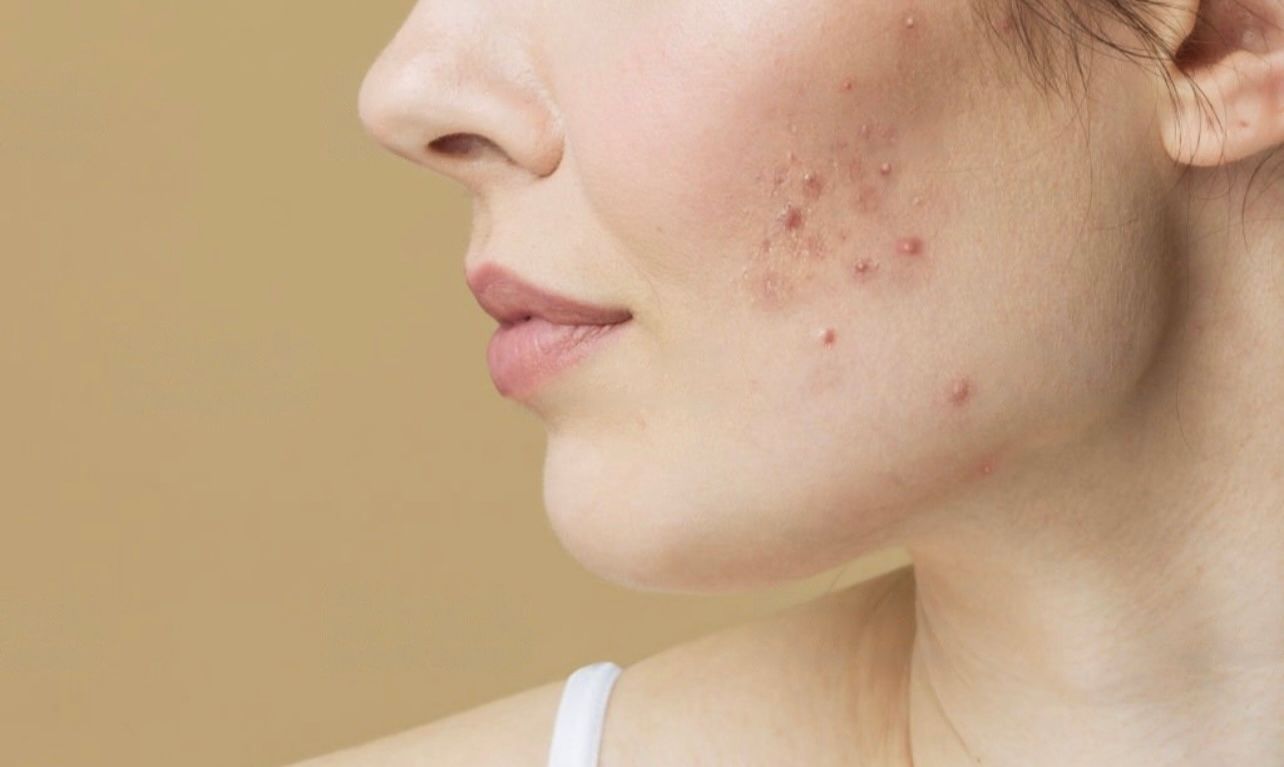Acne-Free Diet: How Nutrition Can Help Clear Your Skin
Incorporating fruits and vegetables that are rich in antioxidants, foods containing omega-3 fatty acids, and probiotic-rich food items can contribute to maintaining a healthy skin appearance and diminishing inflammation.

Acne is a common skin condition that affects millions of people worldwide, especially during adolescence. While various factors contribute to the development of acne, including genetics and hormonal changes, research suggests that diet plays a significant role as well. The foods we eat can impact our skin health and potentially influence the occurrence and severity of acne. In this article, we will explore the relationship between nutrition and acne, discuss the impact of specific foods on skin health, and provide practical dietary tips for achieving an acne-free complexion.
The Link Between Diet and Acne
1.Inflammation:
- Inflammation is a key factor in the development of acne. Certain foods can trigger an inflammatory response in the body, leading to increased oil production, clogged pores, and the formation of acne lesions.
2.Hormonal Imbalances:
- Hormonal imbalances, particularly elevated levels of androgens (male hormones), can contribute to the development of acne. Some foods can influence hormone levels and exacerbate acne symptoms.
3.Insulin and Insulin-like Growth Factor-1 (IGF-1):
- High glycemic index (GI) foods and those rich in refined sugars can cause rapid spikes in blood sugar levels, leading to increased insulin production. Elevated insulin levels can stimulate the production of sebum and trigger inflammation, contributing to acne formation.
Foods to Include in an Acne-Free Diet
1.Antioxidant-Rich Fruits and Vegetables:
- Colorful fruits and vegetables like berries, oranges, spinach, and kale are rich in antioxidants. Antioxidants help reduce inflammation and oxidative stress, promoting healthy skin and reducing acne symptoms.
2.Omega-3 Fatty Acids:
- Include sources of omega-3 fatty acids, such as fatty fish (salmon, mackerel), walnuts, chia seeds, and flaxseeds. Omega-3 fatty acids have anti-inflammatory properties that can help improve acne symptoms.
3.Probiotics:
- Probiotics, found in fermented foods like yogurt, kefir, sauerkraut, and kimchi, can support gut health and reduce inflammation. A healthy gut microbiome is associated with improved skin health and reduced acne severity.
Foods to Avoid or Limit for Acne-Prone Skin
1.High Glycemic Index (GI) Foods:
- High GI foods like white bread, sugary cereals, and processed snacks can cause blood sugar spikes and trigger acne breakouts. Choose low GI alternatives like whole grains, legumes, and fruits.
2.Dairy Products:
- Some studies suggest a link between dairy consumption and acne. Dairy products may influence hormone levels and promote inflammation. Consider reducing or eliminating dairy intake to see if it improves your skin health.
3.Processed and Fried Foods:
- Processed foods high in unhealthy fats, artificial additives, and preservatives can contribute to inflammation and worsen acne symptoms. Limit your consumption of fast food, fried snacks, and packaged baked goods.
4.Sugary Treats and Sweets:
- Excess sugar consumption can lead to increased insulin levels and promote inflammation, potentially aggravating acne. Minimize your intake of sugary drinks, candy, pastries, and desserts.
SUMMARY
While diet alone cannot cure acne, adopting an acne-free diet can help improve skin health and reduce acne symptoms. Including antioxidant-rich fruits and vegetables, omega-3 fatty acids, and probiotic-rich foods can promote a healthy complexion and reduce inflammation. Conversely, avoiding or limiting high GI foods, dairy products, processed and fried foods, and sugary treats can help minimize acne flare-ups. Remember that everyone's skin is unique, and it may take time to find the dietary approach that works best for you. If you have severe acne or are concerned about your skin health, consult a dermatologist for personalized advice and treatment options.
Jayti Shah is a Clinical Nutritionist with a master's degree in Clinical Nutrition and Dietetics. She is a member of the Indian Dietetic Association (IDA). Over the last 9 years, she has helped 400 clients in their clinical and weight loss journeys. She works with SocialBoat as a nutrition consultant.
At SocialBoat, we offer custom diet plans and guided workouts to help you achieve your goals in a 360-degree approach. Our gamified experience ensures that you don’t find workouts boring and we reward you for being consistent with your efforts.

REFERENCES
- Melnik BC. Diet in acne: Further evidence for the role of nutrient signaling in acne pathogenesis. Acta Derm Venereol. 2012;92(3):228-231.
- Burris J, Rietkerk W, Woolf K. Acne: The role of medical nutrition therapy. J Acad Nutr Diet. 2013;113(3):416-430.
- Bowe WP, Joshi SS, Shalita AR. Diet and acne. J Am Acad Dermatol. 2010;63(1):124-141.
- Bowe WP, Logan AC. Acne vulgaris, probiotics and the gut-brain-skin axis: From anecdote to translational medicine. Benef Microbes. 2014;5(2):185-199.
- Yoon MY, Min SU, et al. The influence of dietary patterns on acne vulgaris in Koreans. Eur J Dermatol. 2010;20(6):768-772.
